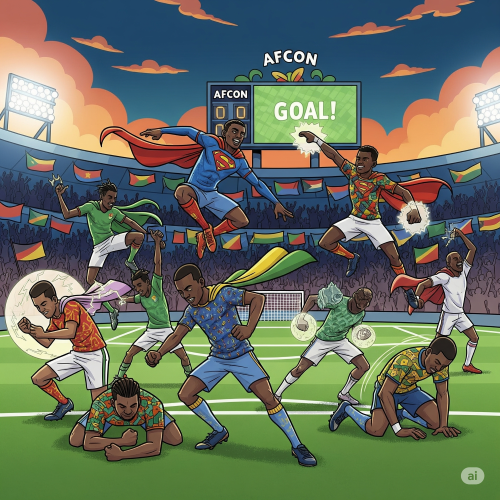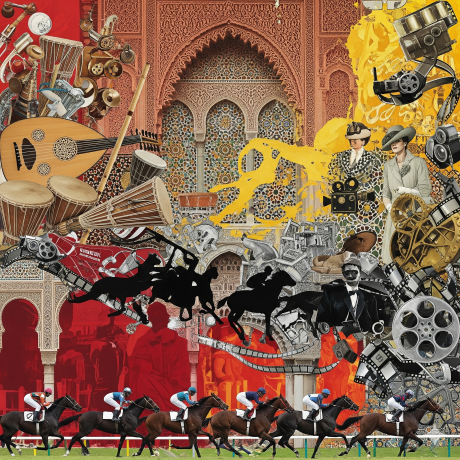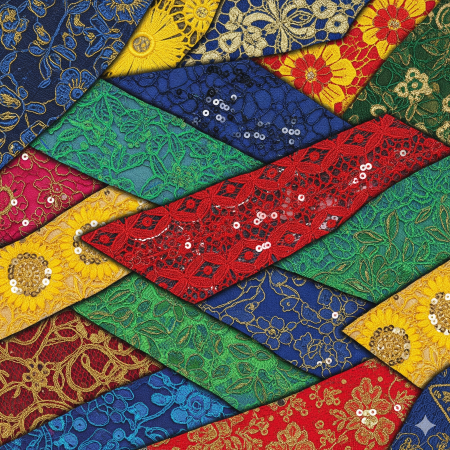AFCON: What We’ve Learnt So Far and What Comes Next

The Africa Cup of Nations (AFCON) is one of the most watched football tournaments in the world, drawing attention far beyond the continent. But as its visibility has grown, so too have the expectations around its quality, organization, and long-term direction. Looking at recent editions and the upcoming 2025 tournament in Morocco, there’s a lot to take stock of — from logistical hurdles to high-level competition and structural gaps that still persist.
Morocco Takes the Lead
After Guinea was stripped of hosting rights due to missed infrastructure deadlines, Morocco was named host for AFCON 2025. It’s a pragmatic choice. The country has invested heavily in football infrastructure and has a strategic interest in showcasing its readiness ahead of the 2030 FIFA World Cup, which it will co-host with Spain and Portugal.
The tournament will be held across six cities; Casablanca, Rabat, Tangier, Fez, Agadir, and Marrakesh, using nine stadiums that meet or exceed CAF’s minimum standards. From a facilities standpoint, Morocco is better positioned than many past hosts. The test will be in execution, particularly in transportation, fan engagement, and overall event coordination.
A Scheduling Challenge That Won’t Go Away
Originally scheduled for mid-2025, the tournament has been pushed to December 2025 and January 2026. The reason is straightforward: the newly expanded FIFA Club World Cup, scheduled for June 2025, would have overlapped with AFCON.
This kind of rescheduling has become routine, and it exposes an ongoing challenge. CAF continues to struggle with setting and maintaining a consistent tournament window. Weather patterns in many host countries rule out mid-year events, while the European football calendar creates ongoing friction for players and clubs. Until CAF can establish a reliable scheduling framework that’s respected internationally, AFCON will remain vulnerable to late adjustments.
Ivory Coast 2024: Competitive Success, Mixed Execution
Image Credit: Icon Sport
The 2023 Africa Cup of Nations, hosted by Ivory Coast in early 2024, was a thrilling and emotionally significant tournament. Ivory Coast won the title on home soil,defeating Nigeria 2–1 in a closely contested final. The victory held symbolic weight for a nation that has faced political instability in recent years.
The competition also showcased the rise of emerging teams such as Equatorial Guinea and Namibia, whose strong performances reflected the increasing competitiveness across African football.
Despite the on-pitch excitement, several organizational problems persisted. Some teams arrived late, training schedules were disrupted, and broadcasting arrangements were unclear in many regions.
Infrastructure, Broadcasting, and Communications
Image Credit: Africa News
While infrastructure has improved in some areas, gaps persist — not just in stadium quality but in public transport access, security coordination, and fan logistics. The 2022 edition in Cameroon was marred by a stadium crush that led to multiple fatalities, and while the 2024 edition avoided similar incidents, the memory of that tragedy still shapes public expectations around safety planning.
Broadcasting is another weak point. Negotiations around TV and digital rights are often finalized too late, limiting access for viewers and reducing potential revenue. CAF has not yet established a consistent and transparent process for sublicensing, and the lack of official digital channels for some national teams reflects an outdated approach to fan engagement in the digital age.
In some cases, fans did not know how or where to watch matches until just days before kickoff. The Confederation of African Football (CAF) continued to struggle with a reactive media rights strategy, which limited commercial opportunities and reduced audience engagement.
What to Watch for in 2025
Image Credit: Sporting News
Looking ahead to the 2025 Africa Cup of Nations, anticipation is building. The qualification campaign concluded in mid-2025 and determined the 24 teams that will compete in Morocco from December 21, 2025, to January 18, 2026.
Qualified teams include hosts Morocco, defending champions Ivory Coast, and major contenders such as Nigeria, Egypt, Senegal, Cameroon, Algeria, and Tunisia. Several rising nations also secured their spots, including Uganda, Angola, Comoros, Botswana, and Zimbabwe. In a surprise turn, Ghana failed to qualify for the first time in over two decades, underscoring the tournament's increasing unpredictability.
With Morocco hosting, expectations will be higher. The country has the capacity to deliver a technically sound tournament, but organizational follow-through will be critical. The late December start may help avoid scheduling conflicts, but it remains to be seen how this will affect player availability and audience turnout during the holiday season.
In the long term, CAF will need to address the structural issues that continue to affect the tournament’s consistency and global positioning. This includes finalizing media rights well in advance, establishing a fixed tournament window, and holding host countries accountable to deliver infrastructure on time.
What We’ve Learnt
The last few editions of AFCON show clear strengths in terms of talent, competitive balance, and public interest. African teams continue to produce players who are influential in top European leagues, and the tournament itself draws global attention.
However, CAF faces recurring operational challenges, in scheduling, broadcasting, logistics, and infrastructure planning. Each edition seems to highlight a different set of administrative issues, and the pattern suggests the need for more systematic planning and earlier execution timelines.
Conclusion
AFCON remains an important tournament, both for the continent and the broader football world. But its future success will depend less on the moments of drama on the pitch and more on the institutional reforms off it.
The vibe is strong. Now the structure needs to match it.
You may also like...
Bundesliga's New Nigerian Star Shines: Ogundu's Explosive Augsburg Debut!

Nigerian players experienced a weekend of mixed results in the German Bundesliga's 23rd match day. Uchenna Ogundu enjoye...
Capello Unleashes Juventus' Secret Weapon Against Osimhen in UCL Showdown!

Juventus faces an uphill battle against Galatasaray in the UEFA Champions League Round of 16 second leg, needing to over...
Berlinale Shocker: 'Yellow Letters' Takes Golden Bear, 'AnyMart' Director Debuts!

The Berlin Film Festival honored
Shocking Trend: Sudan's 'Lion Cubs' – Child Soldiers Going Viral on TikTok

A joint investigation reveals that child soldiers, dubbed 'lion cubs,' have become viral sensations on TikTok and other ...
Gregory Maqoma's 'Genesis': A Powerful Artistic Call for Healing in South Africa

Gregory Maqoma's new dance-opera, "Genesis: The Beginning and End of Time," has premiered in Cape Town, offering a capti...
Massive Rivian 2026.03 Update Boosts R1 Performance and Utility!

Rivian's latest software update, 2026.03, brings substantial enhancements to its R1S SUV and R1T pickup, broadening perf...
Bitcoin's Dire 29% Drop: VanEck Signals Seller Exhaustion Amid Market Carnage!

Bitcoin has suffered a sharp 29% price drop, but a VanEck report suggests seller exhaustion and a potential market botto...
Crypto Titans Shake-Up: Ripple & Deutsche Bank Partner, XRP Dips, CZ's UAE Bitcoin Mining Role Revealed!

Deutsche Bank is set to adopt Ripple's technology for faster, cheaper cross-border payments, marking a significant insti...






